The Covid-19 pandemic will exact a heavy toll on automotive manufacturers and suppliers, who will face mounting financial losses and growing debt. Some may not survive, at least in their current form or without further government bailouts. Such financial fallout, and the need for companies to reduce costs and consolidate investments, could prompt more consolidation at all levels of the automotive industry in the coming years.
The Covid-19 pandemic will exact a heavy toll on automotive manufacturers and suppliers, who will face mounting financial losses and growing debt. Some may not survive, at least in their current form or without further government bailouts. Such financial fallout, and the need for companies to reduce costs and consolidate investments, could prompt more consolidation at all levels of the automotive industry in the coming years.
However, even in the coming weeks and months, as more companies begin restarting production and distribution, the risk of failures in the supply chain could also prompt more immediate consolidation, especially among tier suppliers. In some cases, larger manufacturers might have little choice but to acquire niche players to avoid bringing their supply chains to a halt.
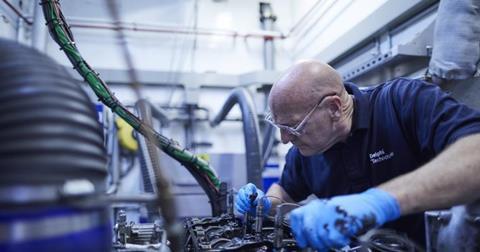
Supplier consolidation trends likely to accelerate
Automotive suppliers were facing financial and operational strains even before the crisis, with their margins increasingly under pressure, as we reported at the beginning of the year in our tier supplier profit analysis. There were already signs of increased mergers and acquisitions (M&A) among suppliers to pool resources and invest in the shift to electrification, as well as other technologies, such as autonomous vehicles (AVs) and connectivity.
The current crisis looks set to knock back the timelines and reduce previous investments in some areas, as is already evident as carmakers such as Ford cull spending on AVs and delay new electric vehicle (EV) launches. The pandemic could also put pre-coronavirus deals at risk. BorgWarner’s acquisition of Delphi Technologies, for example, has been threatened by Delphi’s need to tap extended credit lines.
However, on the whole, the crisis is likely to accelerate the trend towards consolidation.
More suppliers are already moving into survival mode. In countries under strict lockdown, vehicle sales over the past six to eight weeks will have been at close to zero. Even as dealerships start to reopen, a combination of ongoing social distancing measures and restrictions, and a severe recession, are likely to supress vehicle sales. We expect global vehicle sales to fall drastically this year by around 20% compared to 2019, with major regions like Europe and North America likely to see even worse falls.
First quarter results among larger tier suppliers have already been grim – and only show part of the picture given that, outside of China, lockdowns mainly began in March. The coming months and quarter will be much worse, especially as the impact on both lower sales as well as cancelled or delayed vehicle programme becomes clearer. According to analysis from IHS Markit shared during the Automotive from Ultima Media Livestream Coronavirus Series, current product delays will knock off an average of $107m in revenue from the top 50 suppliers over the next year. For Robert Bosch, the world’s largest supplier, this impact alone will be $560m.
Supply chains are also look set to remain highly disrupted. Differing restrictions across countries and states are challenging efforts to restart production, while further outbreaks could lead to new restrictions. Production schedules are likely to be subject to frequent changes, making it difficult for tier suppliers to manage their own planning.
Despite the challenges ahead, we expect large, diversified suppliers such as Bosch, Denso, Magna, ZF or Continental to survive the coming storm. Not only do they have access to extensive credit lines to sure up cash reserves and maintain liquidity, but they are arguably, like larger OEMs, ‘too big to fail’ in some cases. Governments may even step in if they get into serious problems, for example.
However, the coronavirus crisis could strength the cases for a ‘mega merger’ among suppliers. Ultimately, larger suppliers will better be able to handle debt, manage disruption and invest in key technologies – while potentially increasing pricing power. And with weaker tier suppliers under financial stress, company valuations will be low, creating opportunities for strategic acquisitions at bargain prices.
Accidental acquisitions
However, strategy may not drive all or even most supplier consolidation. The potential scale of the downturn in the automotive market, and its ripple effect across the extended supply chain, could force some companies to acquire suppliers as a matter of operational necessity.
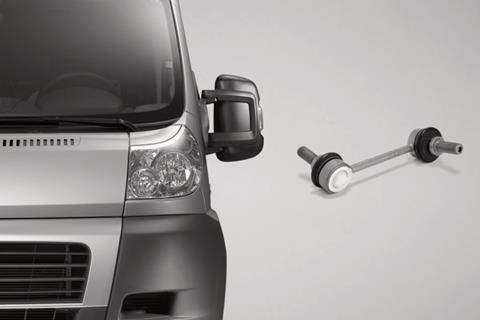
Past crises, whether natural disasters, fires, floods or strikes, have often illustrated where an OEM or tier one may be completely reliant on a single supplier or location for a critical part or specialised component. The risk is no different when that key supplier experiences financial stress. If the company is allowed to fail, it could stop production downstream.
The scale of distress in the current crisis is likely to exceed anything seen before. Moreover, a general lack of visibility in the lower tier supply chain means that the weakest links are likely only to be more fully revealed as production restarts, and companies struggle to secure supply of certain components.
In cases of financial difficulty, initial measures may be offered, including more flexible payment terms, advance payment or even extending credit lines. But if such measures fail, manufacturers face a profound dilemma – to find a completely new alternative or bail out the supplier. In such circumstances, to keep production flowing and mitigate the risk of supply chain disruption, there may be little choice but to buy the supplier outright.
Those most exposed financially are likely to be smaller tier one companies, as well as tier two and tier three suppliers, and even manufacturing equipment and tooling suppliers. Specialist engineering firms usually don’t have the same access to credit lines or substantial cash reserves to draw upon as larger tier ones, for example.
During a financial crisis many companies won’t want to burn through the cash needed to merge with or acquire suppliers. As with past downturns, cashflow will be king. Companies that are likely to survive will be those with less commoditised product portfolios that have been able to accumulate cash reserves. M&As can be costly, and they take time to integrate companies to achieve portfolio synergies and cost efficiencies.
However, whether it is the right time to acquire suppliers will be moot in many instances – especially if taking over a small company is the only way to carry on production and distribution. The current crisis will be an existential one for many automotive companies, and their short-term survival will be paramount over longer term strategies and objectives.
In every crisis, there Is opportunity
That is not to say that even the severity of this crisis won’t bring some automotive suppliers new and further opportunities, including through acquisition. For example, we could witness yet another significant shift in the business models of automotive suppliers, including towards new technology and revenue streams.
In the short term, those companies playing roles in essential services, including commercial vehicles, for example, have been better able to continue business. Suppliers are also likely to eye the potential for e-commerce in the automotive sector with growing interest.
Many suppliers have shifted to producing personal protective equipment and medical devices to help the relief effort and governments. Could this product line prove to be a valuable diversification in the longer run? Companies such as Bosch have already been making more aggressive moves to such products.
Ultimately, larger, integrated suppliers could continue to take a more central role in the automotive supply chain, as was already happening for EVs and ‘turnkey’ powertrains and platform solutions. There is now potential for this to happen in areas ranging from kitting out plants for PPE, facilitating e-commerce or entirely new processes required in the post-Covid-19 world.
Automotive suppliers could see their business models take a knock – but they will be no less essential in the post-crisis automotive sector. Likely, they will be even more so.
































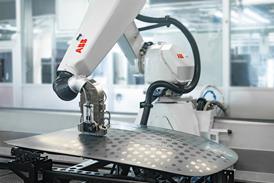

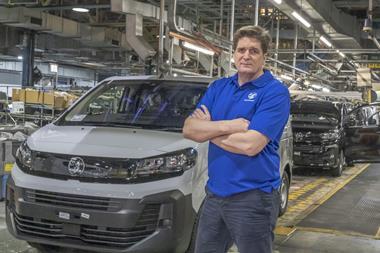
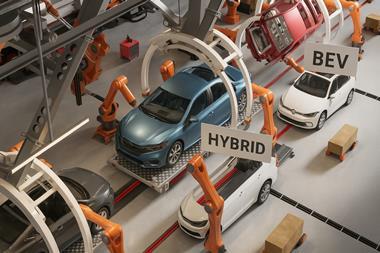





No comments yet